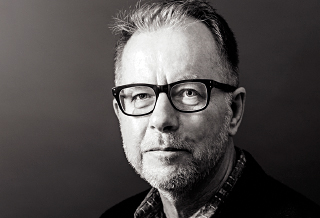3-2-1, Making your way in screen
Few people are thinking about business when they decide to become involved in creative work. Yet business soon asserts itself.
3-2-1 is designed to help early career screen practitioners come to grips with the business of screen production and develop the skills they need in their creative practice and their business activities.
3-2-1 will help you find you place in your chosen industry, make new connections, understand your opportunities and build your career.
The 3-2-1 program has two stages:
Stage One is 3 two-day workshops where you will develop a creative business project.
Using a lean methodology, projects will be intensively workshopped, pitched and improved. The goal will be to weave together the creative and business elements, so that the one supports the other.
Between workshops, the learning will continue through regular phone conferences where participants will report progress, receive feedback and give encouragement to each other.
The teaching will be delivered in three strands: a Creative Business strand led by Compton founder Dr David Court, a Creative Intelligence strand led by creative psychologist Dr Chris Stevens, and a Project Development strand led by film producer Andrea Buck.
At the conclusion of the third workshop, participants will pitch their projects ‘live’ to a panel of senior creative practitioners who will give feedback and advice about how the projects might be taken forward.
In Stage Two, you’ll have the opportunity to join an extension program that, over six months, will help you develop your project to the point of a real-world pitch to investors, producers and anyone else who can help you bring your project to market.
If you are selected for this stage, you will receive one-on-one mentoring and take part in fortnightly phone conferences where you can share problems, get advice and celebrate wins!
See what last year’s participants thought about 3-2-1
‘The secret to getting ahead is getting started’
— MARK TWAIN
The 3-2-1 curriculum
-
Self-management
This topic is about learning how to be your best – how to manage time, deal with stress, be resilient in face of setbacks and maintain a positive outlook.
-
Bringing people together
How do people come together in an enterprise? In this topic we review the business structures commonly used in creative industries. We also practice teamwork and collaboration – core skills in business as well as creative work.
-
The greenlight process
Perhaps the most critical decision in creative work is choosing what to make. We draw on 100 years of Hollywood practice and recent work in experimental economics to show how to design a greenlight process and make better project selection decisions.
-
Understanding investors
Not all investors are alike. Most are risk averse but some are not. They may offer debt or equity, and their money can be ‘hard’ or ‘soft’. We explain the differences and how they play out in the financing of a project.
-
Creative intelligence
What does it mean to work creatively? In this topic we explore models of creativity and how they connect to business productivity. We also explore teamwork and leadership through the lens of creative intelligence.
-
Elements of the pitch
Pitching is a core skill in creative industries. In this topic participants will practice the elements of successful pitching – narrative, clarity, confidence, and engagement.
Dates
- Workshop 1 – 6-7 April 2019
- Workshop 2 – 11-12 May 2019
- Workshop 3 – 15-16 June 2019
Location
- The Arcade, 164 Kings Way, South Melbourne

Course leader – Dr David Court
David was previously Head of Screen Business at the Australian Film Television & Radio School, where he led the highly regarded Masters of Screen Arts & Business program. He has been involved in the financing of more than a dozen film and television productions including Baz Luhrmann’s Strictly Ballroom, Dean Cavell’s The Wiggles Movie and Andrew Horne’s The Animated Leunig. As author of Film Assistance: Future Options (Allen & Unwin, 1986), he was policy architect of the Film Finance Corporation established by the Australian Government in 1988. David holds a PhD from the Crawford School of Public Policy at the Australian National University.
Course convenor – Andrea Buck
Andrea Buck has worked as a film producer, writer and development executive in Australia, Hollywood and South Africa. Her film The Jammed broke box office records and won a sweep of awards including Best Script, Best Music and Best Film at the 2007 INSIDE FILM Awards, as well as seven AFI Award nominations. Andrea holds a Masters in Screen Art & Business from AFTRS, and is a TEDx Speaker and speaker coach.
Cost
- $600*
*Financial assistance is available in cases of merit and need.
To apply contact David Court at [email protected]
Presenting Partner

